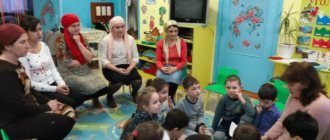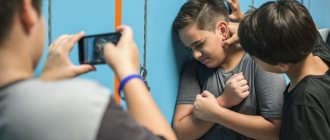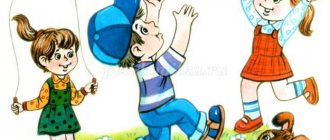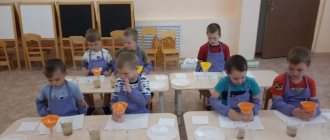Relevance of the project.
In the context of humanization and democratization of society, the problem of tolerance is very relevant, since today the values and principles necessary for common survival and development come to the fore:
- ethics and strategy of nonviolence;
- the idea of tolerance towards foreign and alien positions, values, cultures;
- the need to search for dialogue and mutual understanding, mutually acceptable compromises.
This is due to social problems in society, conflicts on national and religious grounds, which are a direct threat to the security of the country. In Siberia, where people of different nationalities and religious beliefs live, the problem of external and internal migration of the population occupies a special place. Emerging relationship problems can be resolved only by cultivating a tolerant consciousness. Today, hostility, anger, and aggressiveness are becoming increasingly widespread among children and adolescents. There are many reasons for this behavior in children. First of all, it is worth noting the decline in the general level of culture, the mass of negative and often simply aggressive information that falls on the immature psyche of a child from the TV screen or through a computer, social indifference and lack of attention from adults.
The State Concept of Preschool Education states: “In preschool childhood, a child acquires the foundations of personal culture, its basis, corresponding to universal human spiritual values... The formation of the basis of personal culture means that the child is introduced to general, non-transient human values, and not to what can appear valuable to a certain circle of people in a certain region and at certain points in time, joins the universal (universal) means of human life.”
In preschool age, children develop skills of respectful and friendly behavior during relationships with representatives of different cultures, the ability to perceive the environment as the result of cooperation between people of different nationalities and different ethnic origins. They have a positive effect on a person, transform him, elevate him, and return him to a more harmonious state.
The period of preschool childhood is very important for the development of a child’s personality: throughout the entire preschool period, mental functions intensively develop, complex types of activities are formed, and the foundations of cognitive abilities are laid.
Kindergarten, being the first stage in the formation of interpersonal relationships, can and should pay special attention to the problem of tolerance, since it is in childhood that the foundations of human behavior in society are laid. But for this it is necessary to carry out systematic work with all participants in the pedagogical process, create a developmental and learning environment in groups, increase the level of self-awareness and tolerance among educators, preschool specialists, and parents of students.
The diagnostics of parents and kindergarten staff showed a low level of awareness of the problem of tolerance and a low level of national self-awareness. Social problems do not allow parents to pay enough attention to their children - the formation of their worldview. Therefore, one of the main tasks of a kindergarten is to develop in children self-awareness and a tolerant attitude towards the world around them.
Pedagogical ideas for teaching tolerance are contained in the works of many teachers of the past and present. Philosophers, teachers, and scientists interpret the concept of “tolerance” differently, and based on this, the principles of education are determined.
The formation of the foundations of tolerance in preschool children, despite the study of this issue by many famous teachers and scientists, has a number of problems and contradictions. The social order of modern society is focused on a free, independent person who knows how to build relationships with other people and respects their rights and freedoms. However, there are few structured and tested programs and methods for teaching tolerance in preschool age. The possibilities of preschool childhood have been well studied in terms of developing the child’s cognitive and creative abilities, but at the same time, the potential of joint cultural and leisure activities, which could become one of the forms of work to educate a tolerant personality, is not sufficiently used. The family's need for accessible technologies and methods of raising children with a focus on family values and national traditions is not satisfied.
The need to resolve the identified problems in the preschool education system determined the choice of the project topic: “Formation of tolerance in children of senior preschool age.”
Objective of the project:
Creating conditions for the formation in children of senior preschool age of a tolerant attitude towards the world around them.
Project objectives for children:
- Formation in children of senior preschool age the ability to see and understand another person, to show empathy and sympathy for people.
- Formation of tolerant behavior, internal and external legal culture in children.
- Improving the culture of interpersonal interaction among children in the group.
- Strengthening moral ideas and skills of socially acceptable behavior.
Tasks for teachers and parents:
- familiarizing the teaching staff with the latest in methodological literature covering the issues of developing tolerant behavior and communication in children
- increasing the competence of parents on legal issues
- equipping a subject-development environment in groups and in preschool educational institutions that meets the principles of cultural conformity and individuality;
- the use of pedagogical technologies focused on the development of tolerance in working with children;
- interaction between teachers and parents of children in promoting tolerance.
Type of project: creative and research, intergroup, medium duration.
Participants: kindergarten teachers and specialists, parents, children.
Project implementation period: November 2012 – March 2013.
Stage I: Preparatory.
| Develop a work plan for the NDOU on the formation of tolerance for the 2012-2013 academic year | Art. teacher Bowser E.V. |
| Think over and prepare a system of events for Tolerance Week | Creative Group |
| Purchase of educational games, toys, visual demonstration materials, paintings by world artists | Head of the nursery school Dmitrienko T.A. Art. teacher Bowser E.V. |
| Creation of a card index of outdoor games of the peoples of the world | Physical education instructor Ovchinnikova A.V. |
| Familiarization of the teaching staff with the latest in methodological literature covering the issues of developing tolerant behavior and communication in children | Art. teacher Bowser E.V. Teacher-psychologist Kuzminykh E.S. |
| Equipping a subject-development environment in groups and in preschool educational institutions that meets the principles of cultural conformity and individuality | Art. teacher Bowser E.V. Group teachers |
| Reflection of issues and problems of education of tolerance in children in issues of a kindergarten newspaper. | Art. teacher Bowser E.V. Kindergarten teachers |
| Involving parents in the educational process, preparing school-wide and group events on the topic of tolerance. | Head of the nursery school Dmitrienko T.A. Art. teacher Bowser E.V. Group teachers |
| Increasing the competence of parents on legal issues, studying the social status of families of pupils | Teacher-psychologist Kuzminykh E.S. Group teachers |
| Organizing a meeting with Father Vladimir, minister of the Alexander Nevsky Church | Head of the nursery school Dmitrienko T.A. |
II : Project implementation.
Development of a work plan for non-government preschool educational institutions to form the foundations of tolerance in children of senior preschool age.
Development and implementation of Tolerance Week events
from 12 to 16 November
Reading fairy tales of the peoples of the world during the week.
November 12 release of leaflets for parents “Recommendations for parents on tolerant upbringing of children”
Wall newspaper "November 16 - World Tolerance Day"
(responsible: educators)
November 13 “Kids Help Day” - making souvenirs and crafts for children of the first and second junior groups (middle, senior, preparatory groups; responsible: teachers)
November 14 campaign (senior, preparatory group; responsible: educational psychologist)
November 15 Sports festival “Games of different nations”
(responsible: physical education instructor)
Exhibition of children's drawings "My Friends"
(senior and preparatory groups; responsible: educators)
Photo exhibition “We and our little brothers”
(junior, middle groups; responsible: educators).
November 16 Performance “Fly-Tsokotukha” for children of all ages.
Joint holding of events on tolerant mutual understanding with tea drinking “We are different, but we are friendly” (children and parents; in groups;
responsible: educators).
Implementation of the project in educational areas:
Children's Day
(socialization, communication, artistic creativity, cognition, work, safety)
Promotion “Sending Greetings”
(socialization, communication, cognition, artistic creativity, labor)
Sports festival
"Games of different nations"
(physical culture, health, cognition, communication, socialization, safety)
Reading fairy tales of the peoples of the world, works of Russian and foreign writers
(fiction, cognition, socialization, communication)
Exhibition of children's drawings "My Friends"
(artistic creativity, communication)
Photo exhibition “We and our little brothers”
(artistic creativity, socialization, communication, cognition, safety)
Performances “Fly-Tsokotukha”, “Kolobok in a new way”
(socialization, communication, cognition, fiction)
Preparation of the performance
“The New Adventures of Little Red Riding Hood” and the festival of theatrical mini-productions “Theatrical Kaleidoscope”
Conducting workshops for teachers “Issues of developing tolerance in preschool practice”
Working with parents:
Production of folders “Rights and Responsibilities of Adults and Children”, brochures, wall newspapers, memos and recommendations for cultivating a tolerant attitude towards the world around us.
Meeting and conversation with Father Vladimir, a minister of the Alexander Nevsky Church.
Organization of joint activities, tea parties with parents.
III : Presentation of the project.
Presentation “Pedagogy of Tolerance”
Abstract
Pedagogy of tolerance
Modern society, with its informationization and stress, is increasingly characterized as a society of increased aggressiveness.
Cartoons, action films and thrillers, detective stories, computer games - everything that modern children are surrounded by and with which they fill their leisure time is imbued with aggression. Therefore, at present, the topic of teaching tolerance is extremely relevant in modern preschool educational institutions.
Children belonging to different ethnic groups and confessions (religions) come to kindergarten, so preschool teachers solve the following problem: to teach tolerance. And this means preparing students for life, for communicating with many other, very different people.
Working with personnel
to foster a culture of tolerance
Goal
Formation of skills among teaching staff - education of tolerant consciousness in preschool children, ideas about a tolerant urban environment, ideology and culture of tolerance.
Task
Raise preschool children in the spirit of friendship, harmony, peacefulness and respect for people of different nationalities.
Basic concepts
pedagogies of tolerance are the following: tolerance, political tolerance, ethnic tolerance, religious tolerance, tolerant interaction, pedagogy of tolerance, pedagogy of cooperation, education, professional competence.
Working with personnel
to foster a culture of tolerance
Modern approaches
Pedagogical knowledge in this area involves conducting seminars, trainings, etc., which allow teachers to gain theoretical knowledge, practical skills, and the ability to interact tolerantly to develop a tolerant consciousness, attitude, and behavior in students.
Forms, methods, and techniques for developing tolerance.
- Methods for developing tolerance: conversation, discussion, example, encouragement, analysis of educational situations, method of persuasion, method of suggestion, etc.
- Techniques: microphone in a circle, opinion relay, relay on a given topic, etc.
- Forms of tolerance education: conversations, debates, trainings, game programs, etc.
International Day of Tolerance (Tolerance)
International Day of Tolerance, declared by UNESCO in November 1995.
In 1996, the General Assembly proposed that UN member states annually
November 16
celebrate the International Day for Tolerance.
This decision was taken in connection with the 1995 United Nations Year for Tolerance (proclaimed by the Assembly in 1993).
On November 16, 1995, UNESCO Member States adopted the Declaration
principles of tolerance.
The Declaration of Principles of Tolerance declared that all people are different by nature, but equal in their dignity and rights.
According to the document, tolerance means
respect, acceptance and proper understanding of the rich diversity of the world's cultures, forms of self-expression and ways of expressing human individuality.
In the Russian Federation, the main document for a broad definition of tolerance is the Constitution.
Showing tolerance
, which is consonant with respect for human rights, does not mean a tolerant attitude towards social injustice, abandonment of one’s own or concession to others’ beliefs.
It means that everyone is free to hold their own beliefs and recognizes the same right for others.
It means recognizing that people by nature differ in appearance, attitude, speech, behavior and values and have the right to live in the world and maintain their individuality. This also means that one person's views cannot be imposed on others.
Concept of tolerance
From the Declaration of Principles of Tolerance (UNESCO)
Tolerance
means respect, acceptance and proper understanding of the rich diversity of our world's cultures, forms of self-expression and manifestation of human individuality. It is promoted by knowledge, openness, communication and freedom of thought, conscience and belief.
Tolerance
– this is unity in diversity.
Tolerance
is what makes peace possible and leads from a culture of war to a culture of peace.
Tolerance
– this is not a concession, condescension or indulgence.
Tolerance _
- This is, first of all, an active attitude formed on the basis of universal human rights and fundamental freedoms.
Tolerance
is a responsibility to promote human rights.
The manifestation of tolerance, which is consonant with respect for human rights, does not mean tolerating social injustice, abandoning one's own or yielding to other people's beliefs.
It means that everyone is free to hold their own beliefs and recognizes the same right for others. It means recognizing that people by nature differ in appearance, attitude, speech, behavior and values and have the right to live in the world and maintain their individuality. This also means that one person's views cannot be imposed on others.
Formation of tolerance in children
in the modern education system
Tolerance as a component of pedagogical culture and pedagogical competence of a teacher.
- A competency-based approach to teacher training is necessary for the professionalism of a modern teacher in solving the problems of developing political, ethnic and religious tolerance in preschoolers.
- Components of pedagogical tolerance: goodwill, attentive attitude towards others, conflict-free communication, sociability, pedagogical cooperation, listening skills, communicative tolerance, dialogical thinking, self-acceptance and acceptance of others.
Practical lesson “Pedagogy of balloons”
Target:
Foster respect for the national cultures of different peoples; to instill in children pride in the uniqueness of their national culture.
How many different peoples live on Earth? Great multitude. Almost all corners of our planet have been explored and inhabited.
There are a variety of children living on our planet. Children with red, yellow, white and black skin... children with almond-shaped and slanted eyes, children with straight and curly hair... children who have a lot of things at their disposal and children who have nothing... children whose home is the rainforest South America and the jungles of Africa, and children living in the skyscrapers of megacities.
Billions of boys and girls, similar and completely different, play, chat, laugh, cry, eat (but there are also those who, unfortunately, have nothing to eat), celebrate birthdays, watch nature, and some work.
Although children of different nations are not alike, they all need the same thing: to be loved and cared for, to have a home, family, true friends, food, clothing, the opportunity to go to school and... a little space for Game!
Practical lesson “Pedagogy of balloons”
In order to approach parenting issues competently, you need to learn how to play children's games that will help answer the question of how to keep children occupied and reveal the secret of the ability to communicate.
“And we’ll play with you... Choose a balloon: white, brown, yellow or black - and draw on it parts of the face that are typical of a representative of a certain race.
These are our little friends. They introduce us to their traditions and customs of the country. Their name is... You can organize holidays with them, draw, play, etc...."
Have a safe journey to the wonderful land of CHILDHOOD!
“So many peoples, so many faces...”
Formation of tolerance in children
in the conditions of the modern education system
Principles of education of tolerance. Their compliance with the principles of pedagogy of non-violence - pedagogy of cooperation.
- The basic principles of non-violence pedagogy and cooperation pedagogy correspond to modern pedagogical science and are associated with the formation of the foundations of tolerance in preschoolers. Principles of tolerance education:
- principle of a tolerant environment,
- principle of conditional tolerance,
- the principle of personal dignity
- the principle of dialogue and cooperation, etc.
Training “We are all different, but we are all together”
Goal: to stimulate the need for self-knowledge and knowledge of the characteristics of others, to form ideas about the “unification factor” of this group, tolerance towards oneself and employees
Exercise
“World greeting”
Purpose. Greet training participants without words in ways accepted in various countries:
- Russia – hug and three kisses alternately on both cheeks
- China - light bow with arms crossed on the chest.
- France – handshake and kiss on both cheeks.
- India – light bow, palms extended to the sides.
- Spain – kiss on the cheeks, palms on forearms.
- Germany - a simple handshake and a look in the eyes.
- The Eskimo tradition is to rub noses against each other.
Training “The Power of Tolerance”
Goal: Develop skills of pedagogical tolerance
Exercise
“General Rhythm”
Purpose: increasing group cohesion.
Participants stand in a circle. The leader claps his hands several times at a certain speed, setting a rhythm that the group must maintain as follows: the participant standing to the right of the leader makes one clap, followed by the next, etc. It should feel as if one person is clapping at a given rhythm, and not all members of the group in turn. This exercise rarely succeeds the first time. After several trial laps, participants who disrupt the general rhythm gradually drop out of the game.
Modification of the exercise. The presenter beats out some simple musical phrase with his hands. Then everyone repeats it in turn (the whole group can simultaneously beat out the rhythm).
Exercise
“Acoustics”
Participants sit silently in a circle. Closing their eyes, they first concentrate their attention on the sounds coming from outside - from the corridor, from the street. After 1-2 minutes the presenter asks what they heard. Then they close their eyes again and concentrate on the sounds inside the room. After 1-2 minutes, the presenter asks them again what they heard.
Practical lesson “Indicators of tolerance” tests
The content of tolerance education in the system of modern multicultural education.
The concept of interethnic tolerance and the culture of interethnic communication is one of the most important (basic) components of the content of tolerance education. The ability to rejoice.
A person who knows how to rejoice is less prone to conflicts and demonstrates more tolerant behavior.
Rejoice more, rejoice like children! Rejoice with your children! And there will be fewer conflicts! Are you a conflict person?
Awareness of different tolerant approaches to conflict resolution and ways to deal positively with differences between people.
Tolerance and peace in the family, team, and society often depend on the ability to resolve conflicts. A tolerant approach to a conflict situation promotes the search for alternative solutions as opposed to a destructive struggle.
- It would be very useful for future and existing teachers and everyone involved in education to test their own level of tolerance and determine the extent of their understanding of others who are different from themselves.
From UNESCO materials
- After teachers become familiar with trainings and practical exercises, they can subsequently conduct games with students to develop their political, ethnic and religious tolerance.
Exhibition of children's works on the theme “Friendship”
With love
for children of all nationalities
The origins of tolerance lie in the acceptance of universal human values, the values of goodness, love, and justice.
This is what parents strive to instill in their children.
This is what teachers constantly remind us of.
This is what we all EXPECT from others.
Treat other people the way you would like to be treated.
Love each other always
Presentation of the project at a meeting of teachers
Conducting a festival of theatrical mini-productions
“Theatrical Kaleidoscope” for children of kindergartens No. 163 “Harmony”, No. 164 “Fairy Tale” of Russian Railways JSC and parents of pupils
Work results:
- Increasing the pedagogical competence of kindergarten teachers and specialists.
- Compiling a card index of outdoor games, sports festival scenarios, and leisure activities with parents.
- Improving the legal and pedagogical culture of parents (moving folders, memos and recommendations for promoting tolerance).
- Development of creative abilities of kindergarten students and teachers, their communication skills.
- Strengthening the cooperative relationship between the kindergarten and the parents of the pupils.
Cultivating the basics of tolerance in preschoolers (from the experience of a kindergarten)
Cultivating tolerance is one of the most important problems today.
Recently, discussions have often arisen about a tolerant world, the so-called world without violence and cruelty, in which the main value is the unique and inviolable human personality.
The relevance of the problem of tolerance is due to the fact that today the values and principles necessary for general survival and free development of the individual are coming to the fore. Therefore, in our work we strive to form moral values in children, which are the most important indicators of the integrity of an individual who is capable of creating their own idea of their future life path.
At the present stage of development of society, the need has arisen to form a culture of tolerance among the younger generation, starting from preschool age.
The formation of this most important quality occurs already in childhood in the context of family and educational institutions, and continues throughout life with the development of education.
Definition of the word "tolerance":
In Spanish
- ability
acknowledge ideas and opinions different from your own;
In French
- an attitude in which it is accepted that others may think or act differently than oneself;
In English
– willingness to be tolerant, condescending;
In Chinese
– allow, accept, be generous towards others;
In Arabic
– forgiveness, forbearance, gentleness, mercy, compassion, benevolence, patience, disposition towards others;
In Russian
– the ability to endure something or someone (to be self-possessed, hardy, persistent, to be able to put up with the existence of something, someone).
Ideas taken as a basis:
Treat others with respect.
Never think that your opinion is more important than the opinion of another person.
Do not impose your opinion on others, you can simply express it.
We must remember that everyone is free to choose their own image and style, their own habits and preferences (within the limits of decency).
Be able to see the value and originality of the culture of each nation.
In solving the problems of developing tolerance, a special role is assigned to preschool education and upbringing as the initial stage in the moral development of a child. Tolerance, respect, acceptance and a correct understanding of the world's cultures should be instilled at an early age, in kindergarten. Treating representatives of different nationalities with respect and respect is an integral condition of tolerant education, and we educators must bring to the consciousness of children that people are equal in their dignity and rights, although they are different in nature. The period of preschool childhood is very important for the development of a child’s personality: throughout the entire preschool period, mental functions intensively develop, complex types of activities are formed, and the foundations of cognitive abilities are laid.
Achieving this goal is possible by solving specific problems
, which are combined into two interconnected blocks:
| I. Raising children to be peaceful, accepting and understanding other people, the ability to interact positively with them: 1) the formation of a negative attitude towards violence and aggression in any form; 2) the formation of respect and recognition for oneself and for people, for their culture; 3) development of the ability for interethnic and interreligious interaction; 4) development of the ability for tolerant communication, for constructive interaction with representatives of society, regardless of their affiliation and worldview; 5) developing the ability to determine the boundaries of tolerance. | II. Creating a tolerant environment in society and in education: 1) prevention of terrorism, extremism and aggression in society; 2) humanization and democratization of existing relationships between adults and children, systems of education and upbringing; 3) inclusion of the leading ideas of the pedagogy of tolerance into the reform of education; 4) reforming the system of training future teachers to instill tolerance in children. |
Basic principles:
1. The principle of subjectivity. It requires support for the child’s independent activity, stimulation of his self-education, and conscious behavior in relationships with other people.
2. The principle of adequacy. Requires consistency between the content and means of education, and is focused on real relationships that develop between children, parents, and teachers.
3. The principle of a reflexive position. It assumes a focus on the formation in children of a conscious, stable system of relationships to a problem or issue that is significant to them, manifested in appropriate behavior and actions.
4. The principle of individualization. It involves determining an individual approach to the education of consciousness and behavior.
5. The principle of creating a tolerant environment. It requires the formation of humanistic relations in kindergarten, based on the right of everyone to have a unique attitude towards the environment, self-realization in different forms.
Principles of work content:
- —Comprehensive thematic approach to planning.
- —Personally-oriented interaction of participants in the educational process.
- —Integration of educational areas.
- —Use of forms of work with children appropriate to the age group.
- —Providing emotional and practical components of ethnotolerance.
- —Construction of a subject-development environment taking into account modern requirements.
Interaction of preschool educational institutions with families of pupils
Forms of tolerance education:
In order for the work on developing tolerance in preschoolers to be fruitful, it is necessary to involve a wide range of events and different types of activities for preschoolers.
Range of events and different types of activities for preschoolers:
1) holding holidays and other mass forms in order to introduce children to the culture and traditions of their people and the peoples of the world; theatrical activities of preschoolers according to scenarios based on fairy tales of the peoples of the world;
2) role-playing games for preschoolers, the main goal of which is the development and practical application by children of methods of tolerant interaction;
3) Russian folk outdoor games;
4) holding Russian folk holidays, for example, “Maslenitsa”, “Christmas” in accordance with the folk calendar;
5) study of folk holidays of the closest neighboring countries, Scandinavian folk holidays; holidays of the peoples of the East and Muslim countries; 6) introducing children to the traditions of peoples of different countries;
7) with the traditions of celebrating the New Year, May 1, April 1 in different countries;
 games-activities created on materials from various fairy tales in order to solve problems of interpersonal interaction in fairy-tale situations;
games-activities created on materials from various fairy tales in order to solve problems of interpersonal interaction in fairy-tale situations;
9) composing fairy tales and stories by the children themselves; fairy tale dramatizations.
Of course, the formation of tolerance occurred gradually, because all children are different: some are friendly, active, others are shy, others are reserved, each with their own individual abilities and characteristics.
During the classes we used a variety of methodological techniques:
1. Games and play exercises
aimed at:
— development of non-verbal communication skills: “Guess it”, “Favorite fairy-tale hero”;
- developing a sense of closeness with other children: “Tender name”, “Compliments”;
— development of skills aimed at recognizing the feelings of other people: “The sea is agitated”:
- harmonization of awareness of one’s name and surname: “How can we be called differently”, “Guess who it is?”;
— development of the ability to maintain distance in communication: “Standing and sitting”;
— developing the ability to understand the mood of others: “What can you do for a friend”;
— regulation of one’s behavior: “A self-controlled person”;
- manifestation of a sense of mercy, compassion for other people: “Sun of Mercy”, “Good Forester”,
2. Discussion and playback of situations
(problem situations) aimed at the practical application of cultural behavior skills in games, in classes, in public places, at the ability to express empathy and sympathy for adults and peers.
3. Etudes and exercises
aimed at:
- to foster humane and friendly relationships between children: “Gift”;
— fostering respect for people of different nationalities and races: “With our backs to each other,” “Round dance of friendship.”
4. Use of artistic words
: poems, teasers, proverbs and sayings, stories by foreign authors and fairy tales of the peoples of the world.
5. Using visual aids
: plot paintings, photographs, illustrations for fairy tales, drawings, diagrams and maps.
6. Productive activity
– drawing, on the topics: “Self-portrait”, “Me and my mood”, “My name”, “Flower of mercy”, “Children of planet Earth”,
7. An auxiliary technique is listening to music, children's songs, national music of different nations.
Work with children:
- —Conversations
- —Projects
- —Design
- —Video views
- -Excursions
- —Targeted walks
- —Folklore and themed holidays
- —Theatrical performances
Working with parents.
The work of instilling tolerance in children requires close cooperation between kindergarten teachers and parents. To do this, we used various forms of work with parents: meetings, consultations, exhibitions of pedagogical and children's fiction, photo stands, joint holidays, excursions, entertainment, individual conversations with parents. Such consistency in the work of the kindergarten and the family is the most important condition for the full upbringing of a child, the formation of his moral forms of behavior, and legal culture.
- Questioning
- —Joint holidays
- —Round tables
- —Competition “My Pedigree”
- —Collaborative drawing competitions
- -Exhibitions
— Cooperation between preschool educational institutions and families is a priority in the formation of tolerant behavior in preschoolers, ensuring the educational process and real interaction between the child’s parents and society.
— Activities with parents:
- - round table;
— — trainings, family game libraries;
— — thematic days at preschool educational institutions;
— — advisory point;
— — “School for parents”;
— — “Nadezhda” club together with the “Danko” social protection center.
— — targeted excursions together with children around the city.
A project has been developed to develop tolerance in children of senior preschool age “Tolerance is the road to peace!”
As part of solving the problems of multicultural education, interaction with social institutions was provided:
– social;
— the senior citizens’ club “At the Samovar”;
— Cossack society “Stanitsa Pokachevskaya”;
— the “Echo of Generations” movement;
- local history museum;
- exhibition hall.
The cycle of ongoing events allows us, in the conditions of a preschool institution, to form in preschool children an idea of regional characteristics and other cultural differences, as well as to introduce people of another culture, other traditions living in a given area to the perception, while simultaneously finding in them universal human values (kindness, friendship, honesty, love, justice, mutual assistance).
The purpose and objectives of the project.
Target
: Formation of the foundations of a tolerant culture for the personality of a preschooler, teacher and parent.
Tasks
:
1. Creating conditions in preschool educational institutions for the formation of tolerance in children, teachers, and parents.
2. Development of communication abilities as the main feature of a person with a tolerant consciousness.
3. Organization of systematic work to form a positive attitude towards the surrounding world, representatives of different nations, older people and people with disabilities.
4. Formation of the child’s ideas about himself as a unique, self-valuable, unrepeatable personality and the cultivation of an active life position based on:
• the child’s awareness of his needs (physical, spiritual), developing the ability to satisfy them without harming others;
• awareness of one's capabilities; formation of the ability to act in accordance with them, the desire to develop them;
• awareness of one's strengths and weaknesses; manifestations of criticality;
• awareness of their rights and responsibilities to themselves and other people;
• developing the ability to evaluate one’s own actions and the actions of others; the ability to make choices and decisions; listen to the opinions of others; resolve emerging problems peacefully and without conflict;
• deepening understanding of the significance and value of each person's life;
• developing the ability to defend one’s rights and take into account the rights of others, to show tolerance, respect for the traditions and culture of others;
• defining, together with children, the rules and norms of human society (familiarity with the concepts of “rules”, “law”, “norm”, “requirements”, “traditions”, “respect”).
5. To form the motivational, theoretical readiness of parents, educators and all interested subjects of the educational process to implement a system of forming the foundations of tolerance in children of the seventh year of life.
6. Develop a system of productive interaction between participants in the educational process and social partners.
The project is based on general pedagogical and private principles of tolerance education
:
- focus;
— individual and age characteristics
— cultural conformity;
— the unity of the socially organized educational process and real life experience;
— respectful attitude towards the individual;
- positive traits of the child;
— social conditionality of the process of education of tolerance;
— unity of knowledge and behavior;
— dialogue and cooperation;
- reflections.
Also, work on the project assumes continuity
working with schools to improve the quality of work on tolerant upbringing and education of children.
Week “Children of the whole Earth are friends”:
Conversations with children about the history of the holiday: “National Unity Day.”
Story, conversation, examination of illustrations, photos on the topic: “Friendship of peoples of different nationalities, national customs of peoples.”
Conducting outdoor national games.
Exhibition of children's works "We are different, but we are friends."
Musical and sports event “Children of the whole Earth are friends.”
Stand design “I’m small, but I have the right.”
A selection of didactic games on legal education, fairy tales, poems.
Design of a card index of games of the peoples of the world.
Poster competition on tolerance “Tolerance is the road to peace.”
Organization of a week of national cuisine.
Joint celebrations and entertainment
Our preschool educational institution took an active part in the city festival “Ugra - it’s you and me!”
Implementation of the project for interaction with older people “Wisdom is near us”.
Touching the roots of Russian folk art evokes strong emotions in children, makes them empathize, and attentively pay attention to the memory of the past, to their historical roots.
MBDOU DSKV "Ryabinushka" and the club "At the Samovar" decided to introduce a tradition of holding joint events in kindergarten.
Our project is aimed primarily at developing a spiritual and emotional connection between children and elderly people of our city, who came to Pokachi very young, lived and worked here for many years.
The project is necessary to develop a positive attitude towards older people. Activities within the project are a long-term creative collaboration between MBDOU DSKV “Ryabinushka” and the club “At the Samovar”. As a result of the work, a team of like-minded people was formed from members of the “At the Samovar” club and the kindergarten staff - children, teachers, parents.
The purpose of this project:
Forming a positive attitude of preschoolers towards the older generation as respected members of society through introducing them to active cooperation, through explaining to preschoolers the meaning of the wisdom of an older person.
Tasks:
1. Develop emotions and motives that contribute to the formation of respect for older people.
2. Contribute to expanding your circle of communication with adults.
3. Develop communication skills; tactfully and respectfully address kindergarten guests and listen to them carefully.
4. Cultivate a caring attitude towards older people.
5. Support and develop manifestations of humanity in the behavior of children.
6. Form interest in public life.
7. Strengthen knowledge about family traditions and establish continuity between generations.
8. Involve older people in joint activities with children and kindergarten staff to conduct a series of joint activities.
Implementation of the project “Kindness will save the world”:
Objective of the project:
Organization of interaction between preschool children and children with disabilities in a preschool educational institution.
Children with developmental disabilities participate in walks, sports, artistic and aesthetic entertainment, and other activities together with normally developing children. They have the opportunity to visit age groups, environmental, fine arts, theater studios, and a gym. At the same time, children with developmental disabilities are included in various types of activities (games, art, music and rhythm, etc.) together with the pupils of these groups. This model is the first stage of integration, when the initially existing distance between children can gradually decrease. Communication contributes to the inclusion of social adaptation
to life, the formation of a model of behavior in society. Communication between preschool children and disabled children is a kind of “school of morality” aimed at developing responsiveness, mutual understanding, and humanity.
Kindness Week
The teachers reflected with the pupils about important moral values: goodness, respect, love. Classes on moral education showed each child how important such qualities as kindness, mercy, good-heartedness are in the life of every person.
In the younger groups, children learned that animals must be treated with love and care, and that even the slightest suffering should not be caused to any living creature. Those heartless people who throw cats and dogs into the street and condemn them to torture are worthy of condemnation. We need to show concern for homeless animals and help them survive.
In older preschool groups we talked about friendship, kindness, good and kind deeds. Now everyone knows: to believe in good, you need to start doing it. After all, goodness is primarily associated with the ability to rejoice and have compassion, sympathize, empathize, respond to the feelings of others and keep your soul open.
Month of defense-mass and sports work.
Objectives: To develop in children a sense of love for their native land and its history.
Formation of ideas about Russia as a native country, about Moscow as the capital, education of patriotism, respect for the cultural past of Russia through aesthetic education, education of civic and patriotic feelings through the study of state symbols. Involving parents in participation in cultural events.
A week of theatrical performances.
Such fairy tales as “Under the Mushroom”, “How a Hedgehog Searched for Happiness”, “The Wolf and the Seven Little Goats”, etc. were presented.
Family Day Celebration
has become a traditional event in our kindergarten, which solves the important problems of instilling tolerance in children.
Great Victory Day.
Victory Day occupies a special place in the life of every Russian. Therefore, our kindergarten teachers clearly talk about the long and difficult path that preceded this significant day. On the eve of the holiday, we held a reading competition “We will always remember this...”. During the event, children watched the presentation “About War for Children,” listened to theme songs and read poems. A total of 26 children took part in the reading competition. All children were given gifts and sweet prizes. The prize winners received certificates. The event “We are proud and congratulations” was held. Children drew themed drawings about the Victory Day and congratulated the townspeople by posting greeting cards in public places in the city.
As a result, our graduates know that all people differ from each other in appearance and behavior, but also have similar traits (body structure, emotions); they are familiar with the ways of emotional support from a peer, an adult; they understand that the causes of conflict can be opposing interests, feelings, views, and have an idea of possible ways to resolve conflicts. Children can understand each other, realize their own value and the value of other people; show empathy and tolerance; be aware of how others feel about their actions; express your feelings and understand the feelings of others; find a constructive solution to the conflict. In this way, tolerant attitudes are fostered.
List of sources used:
https://nsportal.ru
https://dohcolonoc.ru
https://www.moi-detsad.ru
https://ped-kopilka.ru






